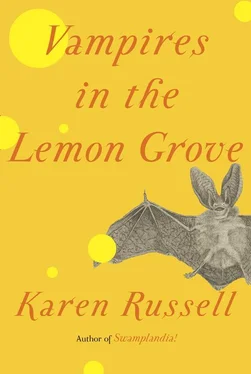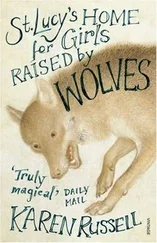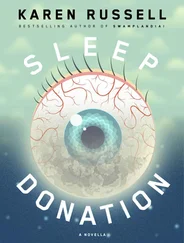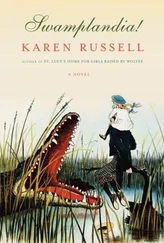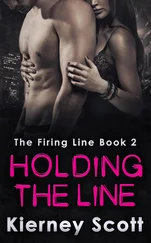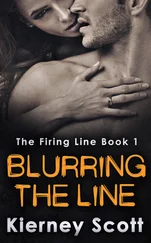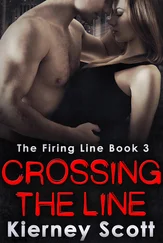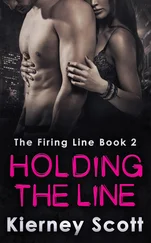Rutherford arches his neck toward her outstretched hand. Freckles of light float across his patchy hindquarters. He licks the girl’s palm according to a code that he’s worked out: — - , which means that he is Rutherford Birchard Hayes, the nineteenth president of the United States of America, and that she should alert the local officials.
“Ha-ha!” the girl laughs. “That tickles.”
Rebirth
When Rutherford woke up inside the horse’s body, he was tied to a stout flag post. He couldn’t focus his new eyes. He was wearing blinders. A flag was whipping above him, but Rutherford was tethered so tightly to the post that he couldn’t twist his neck to count the stars. He could hear a clock gonging somewhere nearby, a sound that rattled through his chest in waves. That clock must be broken, Rutherford thought. It struck upwards of twelve times, of twenty, more gongs than there were hours in a day. After a certain number of repetitions, it ceased to mean anything.
Rutherford stared down into a drainage ditch and saw a horse’s broody face staring back at him. His hooves were rough, unfeeling endings. He stamped, and he couldn’t feel the ground beneath him. The gonging wasn’t a clock at all, he realized with a warm, spreading horror, but the thudding of his giant equine heart.
A man with a prim mustache and a mean slouch blundered toward him, streaked fire up Rutherford’s sides with a forked quirt, shoved Rutherford into a dark trailer. The quirt lashed out again and again, until he felt certain that he had been damned to a rural Hell.
The Devil! Rutherford thought as the man drew closer. He shied away, horrified. But then the man reached up and gave him a gentle ear-scratch and an amber cube of sugar, confounding things further.
“God?”
The man seemed a little on the short side to be God. His fly was down, his polka-dotted underclothes exposed. Surely God would not have faded crimson dots on his underclothes? Surely God would wear a belt? The man kept stroking his blond mustache. His voice sounded thick and wrong to Rutherford’s ears: “He’s in, hyuh-hyuh. Give her the gas, Phyllis!”
The trailer rolled forward, and in three days’ time Rutherford reached the Barn. He has been stabled there ever since.
The Barn
The Barn is part of a modest horse farm, its pastures rolling forward into a blank, mist-cloaked horizon. The landscape is flat and corn-yellow and empty of people. In fact, the prairies look a lot like the grasslands of Kentucky. There are anthills everywhere, impossibly huge, heaped like dirt monsters.
There are twenty-two stalls in the Barn. Eleven of the stabled horses are, as far as Rutherford can ascertain, former presidents of the United States of America. The other stalls are occupied by regular horses, who give the presidents suspicious, sidelong looks. Rutherford B. Hayes is a skewbald pinto with a golden cowlick and a cross-eyed stare. Rutherford hasn’t made many inroads with these regular horses. The Clydesdales are cliquish and pink-gummed, and the palominos are inbred buffoons.
The ratio of presidents to normal horses in the Barn appears to be constant, eleven: eleven. Rutherford keeps trying and failing to make these numbers add up to some explanation ( Let’s see, if I am the nineteenth president but the fourth to arrive in the Barn, and if eleven divided by eleven is one, then … hrm, let me start again … ). He’s still no closer to figuring out the algorithm that determined their rebirth here. “Just because a ratio’s stable doesn’t make it meaningful,” says James Garfield, a tranquil gray Percheron, and Rutherford agrees. Then he goes back to his frantic cosmic arithmetic.
The presidents feel certain that they are still in America, although there’s no way for them to confirm this. The year — time still advances the way it did when they were president — is indeterminate. A day gets measured in different increments out here. Grass brightens, and grass dims. Glass cobwebs spread across the tractor’s window at dawn. Eisenhower claims that they are stabled in the past: “The skies are empty,” he nickers. “Not a B-52 in sight.”
To Rutherford, this new life hums with the strangeness of the future. The man has a cavalry of electric beasts that he rides over his acreage: ruby tractors and combines that would have caused Rutherford’s constituents to fall off their buggies with shock. The man climbs into the high tractor seat and turns a tiny key, and then the engine roars and groans with an unintelligible hymn. Cherubs strumming harps couldn’t have impressed Rutherford more than these baritone plows of the hereafter.
“Come back! That’s not holy music, you dummy!” Eisenhower yells. “It’s just diesel!”
The man goes by the name of Fitzgibbons. The girl appears to be Fitzgibbons’s niece. (Rutherford used to think the girl was an Angel of Mercy, but that was before the incident with the wasps.) She refers to the man as “Uncle Fitzy,” a moniker that many of the presidents find frankly alarming. Rutherford, for his part, feels only relief. “Fitzy” certainly doesn’t seem so bad when you consider the many infernal alternatives: Beelzebub, Mephistopheles, old Serpent, the Prince of Darkness, the Author of Evil, Mister Scratch. Even if Fitzgibbons does turn out to be the Devil, Rutherford thinks, there is something strangely comforting about his Irish surname.
At first many of the presidents assumed that Fitzgibbons was God, but there’s been plenty of evidence to suggest that their reverence was misplaced. Fitzgibbons is not a good shepherd. He sleeps in and lets his spring lambs toddle into ditches. The presidents have watched a drunken Fitzgibbons fall off the roof of the shed. They have listened to Fitzgibbons cursing his dead mother. If Fitzgibbons is God, then every citizen of the Union is in dire jeopardy.
“Well, I for one have great faith in Fitzgibbons. I think he is a just and merciful Lord.” James Buchanan can only deduce, given his administration’s many accomplishments, that this Barn must be Heaven. Buchanan has been reborn as a fastidious bay, a gelding sired by that racing great Caspian Rickleberry. “Do you know that I have an entry in the Royal Ledger of Equine Bloodlines, Rutherford? It’s true.” His nostrils flare with self-regard. “I am being rewarded,” Buchanan insists, “for annexing Oregon.”
“But don’t you think Heaven would smell better, Mr. Buchanan?” Warren Harding is a flatulent roan pony who can’t digest grass. “The presidency was Hell,” he hiccups. “All I wanted was to get out of that damn White House, and now look where I’ve ended up. Dispatch for Mr. Dante: Hell doesn’t happen in circles. This Barn is one square acre of Hell and Fitzgibbons is the Devil!”
Rutherford lately tries to avoid the question. All the explanations that the other presidents have come up with for what has befallen them, and why, feel too simple to Rutherford. Heaven or Hell, every president gets the same ration of wormy apples. Every president is stabled in a 12′ by 12′ stall.
Maybe we have the whole question reversed, mixed up . Rutherford sighs. At night the wind goes tearing through the Barn’s invisible eaves and he wonders. Maybe the man is Heaven, the mobile hand that brings them grain and water. Maybe the Barn itself is God. If Rutherford lops his ears outward, the Barn’s rafters snap with the reverb of something celestial. At dusk, Fitzgibbons feeds them, waters them, shuts the door. Then the Barn breathes with the promise of fire. Stars pinwheel behind the black gaps in the roof. Rutherford can hear the splinters groaning inside wood, waiting to ignite. Perhaps that will be the way to our next life , Rutherford thinks, the lick of blue lightning that sets the Barn ablaze and changes us more finally .
Читать дальше
